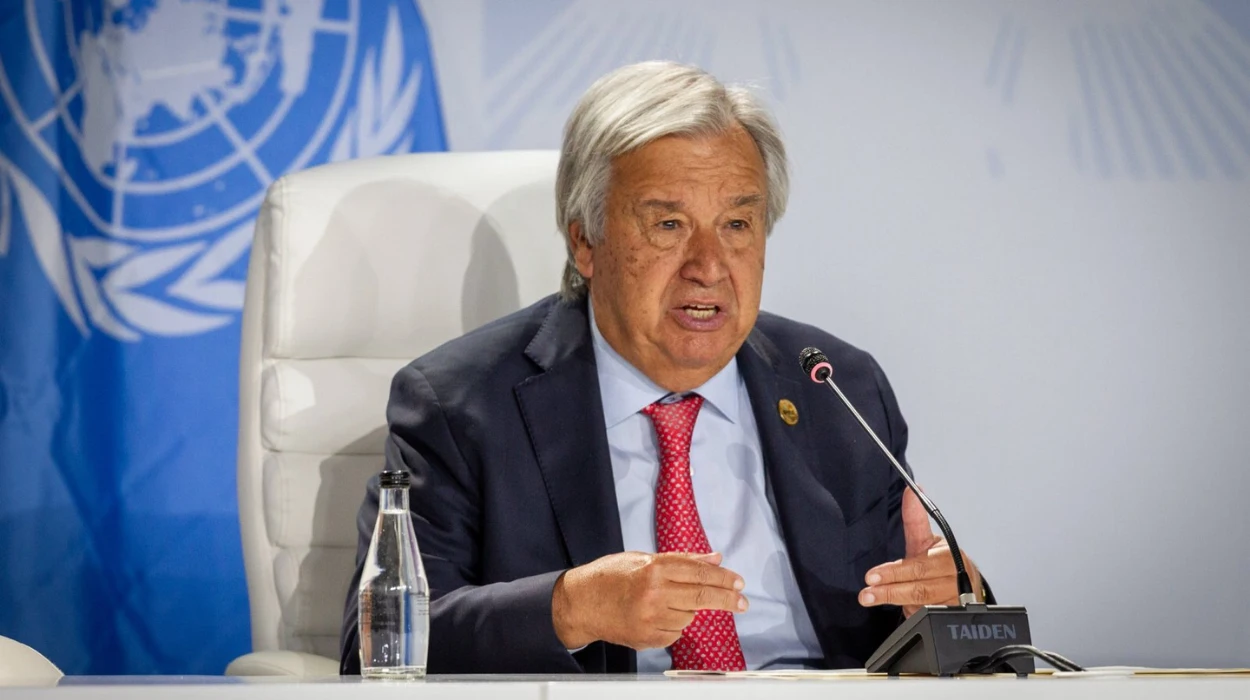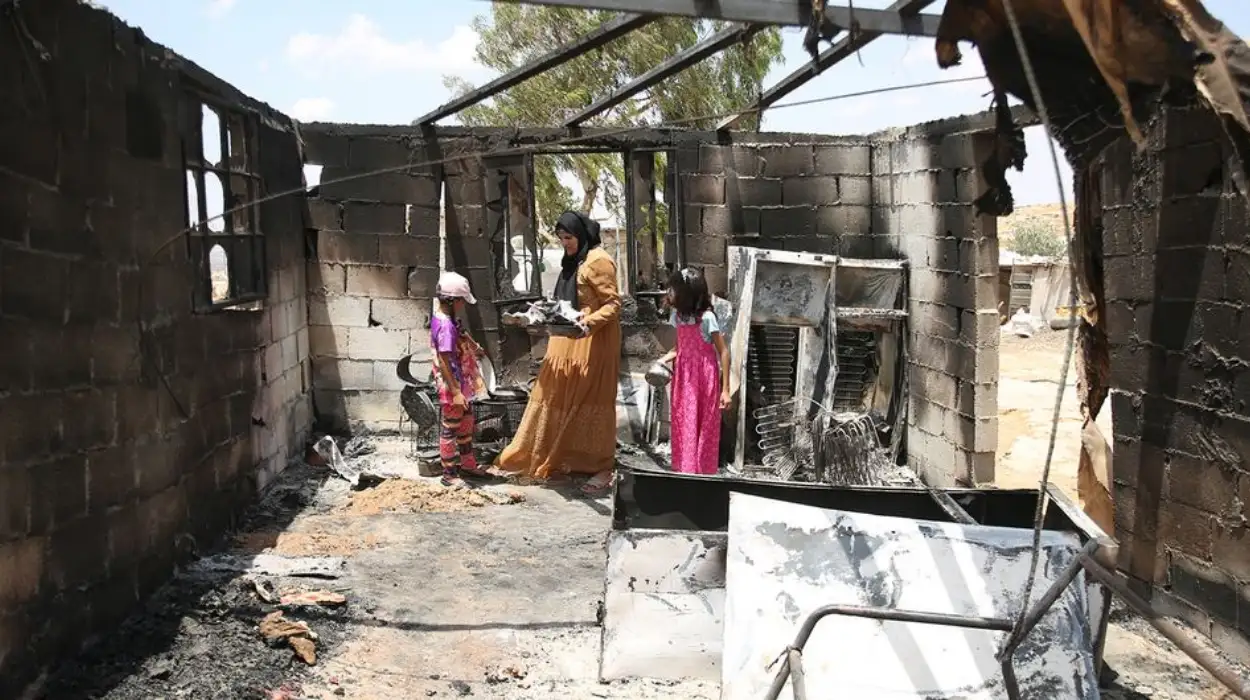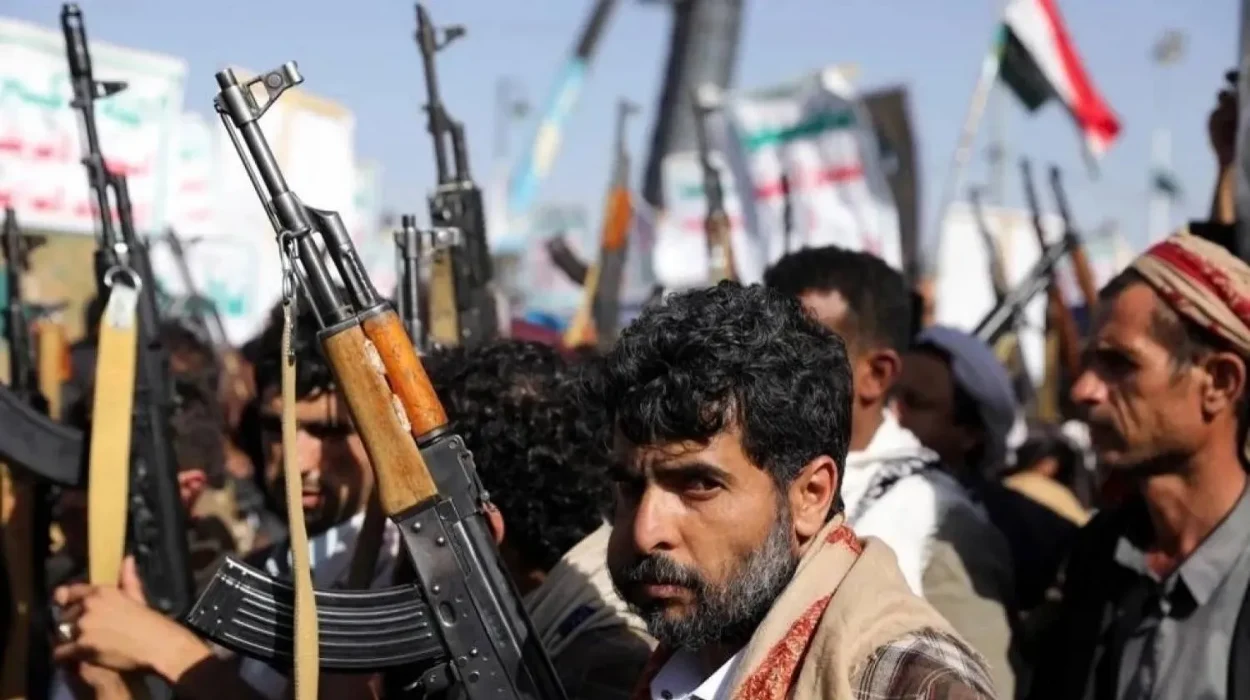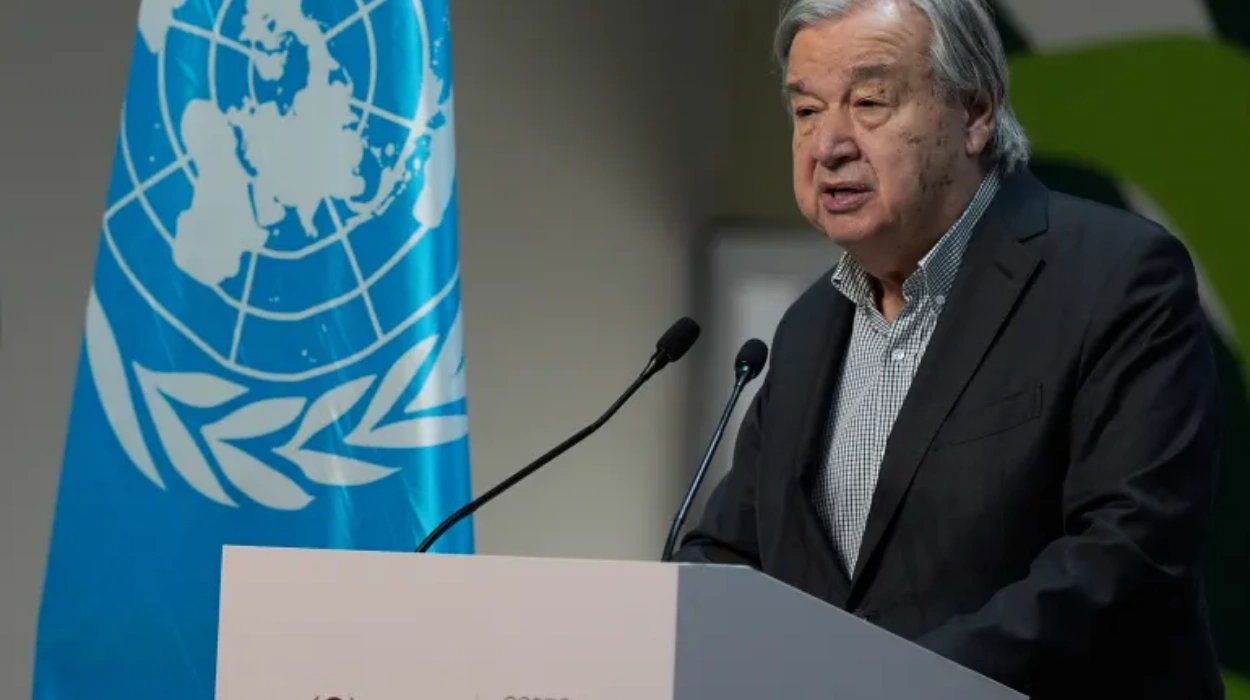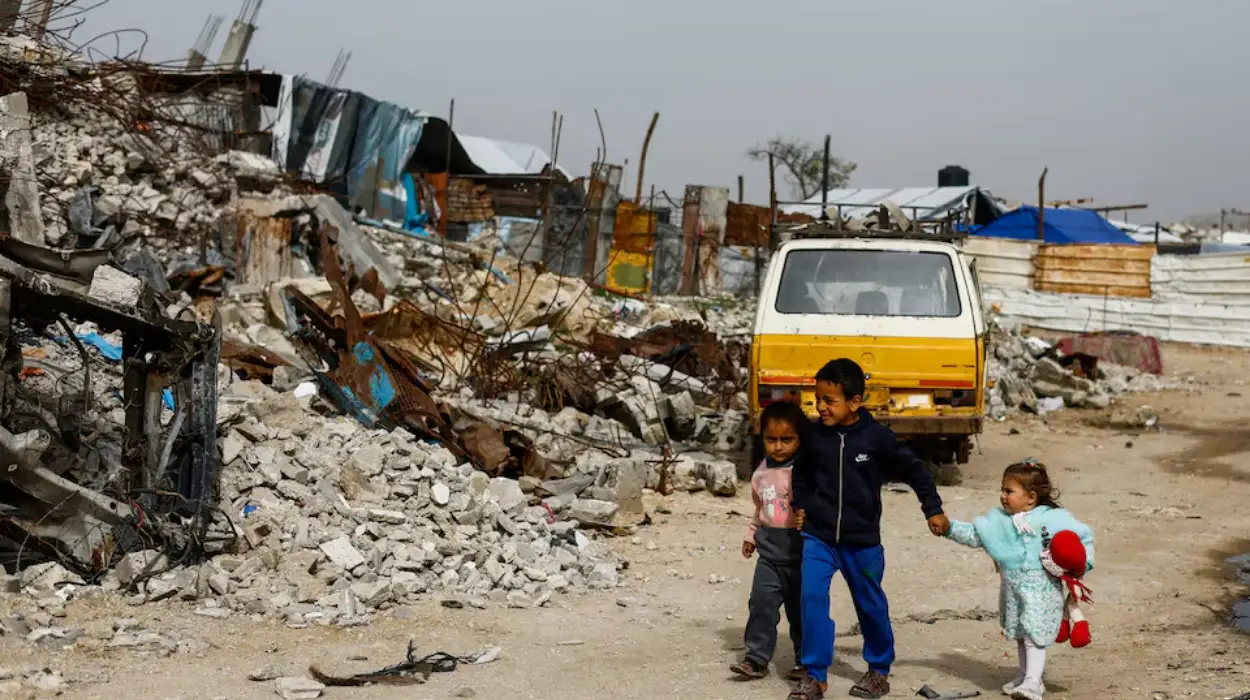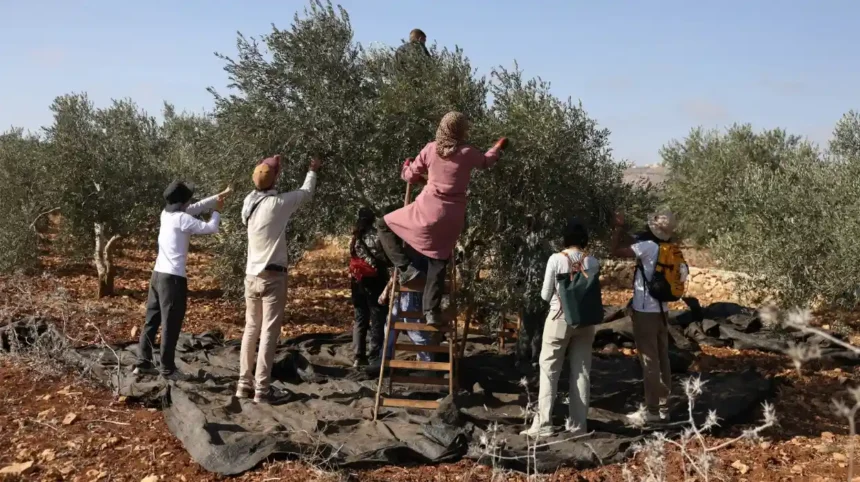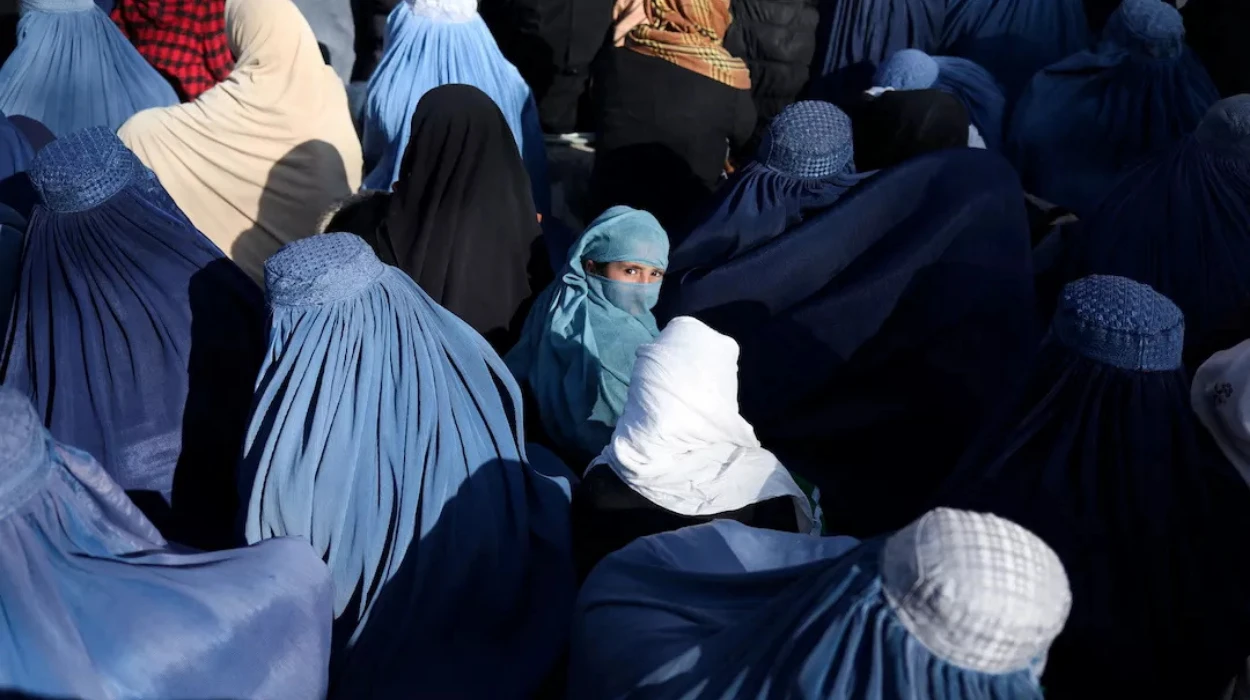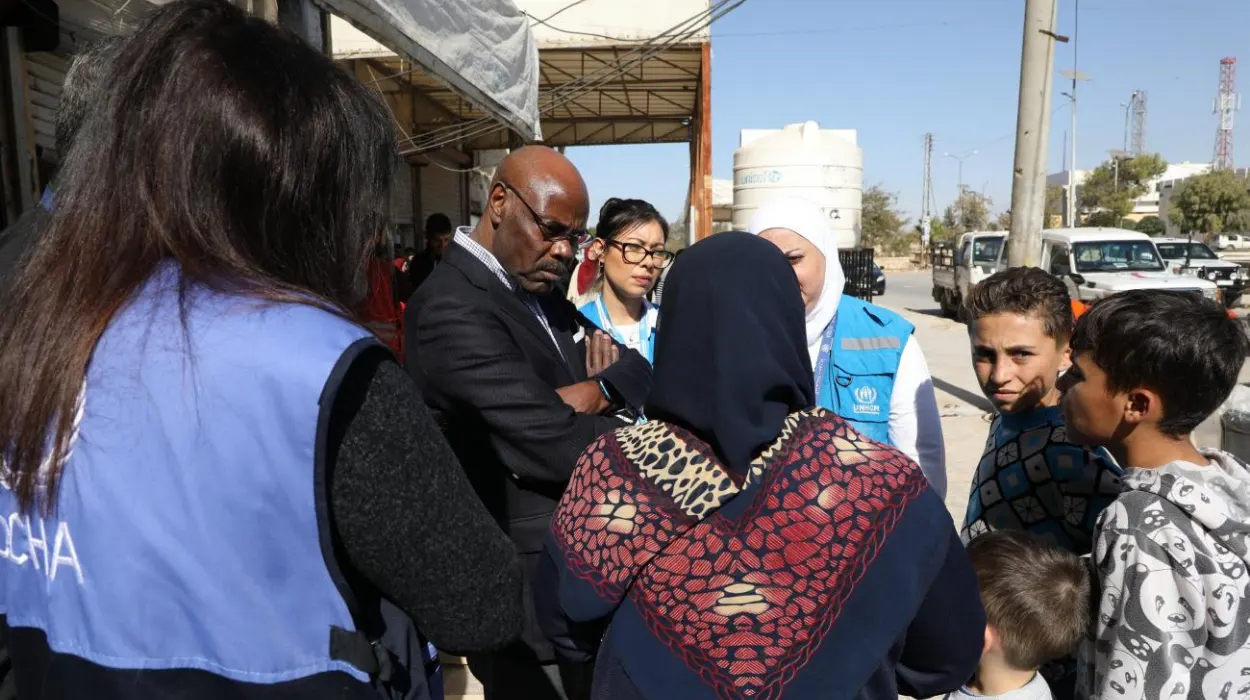Indeed, the recent reports of the United Nations Human Rights Office have indicated the alarming increase of Israeli settler violence during the 2025 olive harvest season in the West Bank. According to Ajith Sunghay, the leader of the UN Human Rights Office occupied by Israel, such attacks have increased dramatically in magnitude and frequency with the run-up to acquiescence, support, and in most cases, participation by Israeli security forces. He also cautioned that impunity still gives courage to criminals, further aggravating the humanitarian cost.
According to official UN data, more than 757 attacks by the settlers took place in the period between January and June 2025, and thus, the increase was 13 percent compared to the same period in 2024. These acts comprised direct attacks on Palestinian farmers, cutting down of olive trees and burning of farm tools and storage centers. Whole groves have been burnt or felled, a catastrophe to the rural Palestinian agriculture.
The burning of the olive trees is an economic as well as a cultural attack. Olive farming has been a practice that has given Palestinians a sense of enduring resilience over the ages linking more than 100,000 families to their history and soils. Every displaced tree symbolizes not only a monetary loss but also a loss of identity and belonging especially in a community where agriculture is the main source of livelihood.
Impact on Palestinian livelihoods and economic sustainability
Settler violence has increased in magnitude and is now threatening the survival of the olive-based economy of Palestine. According to data by the Palestinian Ministry of Agriculture, in 2023, over 9 600 hectares of groves were not being harvested and the losses were over 10 million. This number is likely to increase in 2025, and the attacks will become more serious, and access limitations will get even worse.
The time of olive harvest where people would otherwise gather to share and at least feel a sense of unity and pride in their culture is a season full of fear. Farmers in the North and central West Bank regions such as Nablus, Salfit and Turmus Ayya report increasing threats. The situation was even worsened in Turmus Ayya where many Palestinian-Americans live, following the murder of 14-year-old Palestinian-American Amer Rabee by Israeli forces in April 2025. The incident triggered a new wave of violence, and in the first week of the harvest alone more than 150 settler attacks were reported by the Palestinian Authority.
The problem is worsened by Israeli military imposed restrictions. Dunums of farmland thousands of them cannot be accessed anymore and farmers cannot defend their trees or harvest them. Road blocks, checkpoints and closed military areas deprive Palestinian farmers of their groves days or weeks at a time and leave their crops to rot or be stolen. Settler violence coupled with the formal constraints increases poverty, undermines social resilience, and strengthens the reliance on humanitarian aid.
Human rights implications and security dynamics
The killing of olive harvest workers goes beyond economic interference- it is a systematic abuse of human rights. Rights monitors provide videos of armed settlers beating up Palestinian farmers and foreign volunteers in clubs and guns. Such accidents have resulted in a lot of injuries and hospitalization. Reports by humanitarian observers testify to the fact that Israeli forces tend to stand by during attacks and only step in looking after the defenders of Palestinians and not the settlers.
Security coordination and lack of accountability
The lack of accountability is one of the focal issues. Even in cases where cases of settler violence are documented in dozens, the prosecution rate is insignificant. Human rights organizations have long criticized the two-tier system of law, which they explain as Palestinians being subjected to military tribunals whereas Israeli settlers are subjected to civilian tribunals which are known to give soft sentences or dismiss charges. The consequence is that a culture of impunity is created which deterrence and justice.
Humanitarian access restrictions
The humanitarian activities are also hampered by the violence. According to the UN Office of the Coordination of Humanitarian Affairs (OCHA), emergency response teams sent to the location of the attack are increasing risks of settlers and military restrictions. Attacks also lead to road closures and curfews, which do not allow medical evacuations and support team arrival to be timely. This has led to isolation of communities in some regions like south Hebron hills where families have been forced to leave their lands without some essential services.
Social and psychological toll on rural communities
The psychological impacts are very far-reaching. The farmers along with their families go through repeated trauma as not only does there go earnings but also hope. Olive tree, which is typically treated as a living ancestor, is a victim of destruction that is supposed to demoralize the masses. There is an observed growth in migration of the vulnerable farming villages as reported by the community leaders and local NGOs, threatening the West Bank of losing its members and consequently causing depopulation in the main agricultural areas.
The broader occupation context and international response
The perpetual violence cannot be detached to the greater context of the occupation of the West Bank by Israelis. By 2025 there are 600,000 to 750,000 settlers in stateless parts of the world where settlement growth is accelerating strains. Numerous attacks are taking place around the settlement outposts that are constructed without any approval, but justified retroactively, exerting further pressure on the Palestinian territories.
More than 1,000 cases of settler-related attacks on Palestinian agriculture have already been reported by the UN in the first eight months of 2025 alone. During the same time, 178 Palestinians, most of whom are farmers, were killed by the settlers or the Israeli forces. These statistics support the orderly character of the violence and its direct connection to the strategies of consolidation of territories.
Ajith Sunghay used the words of a Palestinian poet, Mahmoud Darwish, to underline the symbolic richness of these attacks:
“The olive is never just a tree. It is livelihood and lineage, resilience and economy, and a historic vein connecting Palestinians to the land.”
He warned that the attack on olive planting is part of the larger attempts to disaggregate Palestinian lands and hasten de facto annexation as part of expansion of settlement.
International diplomacy and pressure mechanisms
Diplomatic efforts to contain the violence have stepped up but little is actually being done. The United Nations Security Council has been conducting closed door meetings over the escalation but it has yet to come up with binding resolutions over the situation owing to the political differences. Governments in Europe and the region such as Jordan and Ireland have demanded that there should be independent investigations into the settler violence and that the perpetrators should be held accountable. Nonetheless, the internal law processes of Israel still do not provide justice to Palestinian victims.
In the meantime, the humanitarian agencies like UNRWA and UNDP are expanding emergency protection programs involving community watch teams and legal aids but these are severely underfunded. The 2025 humanitarian response plan of the West Bank is only underfunded by almost 60 percent, which limits its coverage at a time when threats are on the increase.
The Biden administration’s call for “restraint from all sides” after the Turmus Ayya violence drew criticism from human rights advocates who argue that moral equivalence ignores the structural imbalance of power. Analysts suggest that unless international actors impose tangible accountability measures such as targeted sanctions on violent settlers and associated groups violence during harvest seasons will remain cyclical.
The 2025 olive harvest season encapsulates the deeper crisis of justice, land, and survival in the West Bank. Each uprooted olive tree marks more than a lost crop—it signifies an erasure of memory, livelihood, and rooted identity. As settler violence intensifies and accountability falters, the question lingers: how long can a people sustain both heritage and hope when even the act of harvesting an olive becomes a frontline of resistance?


